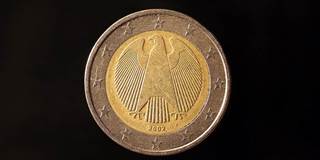When Wolfgang Schäuble, Germany’s finance minister, recently tabled the option of a Greek exit from the euro, he wanted to signal that no member country could abstain from the monetary union's rules. But his initiative triggered a much broader discussion of the euro’s governance and the very rationale for its existence.
PARIS – When Wolfgang Schäuble, Germany’s finance minister, recently tabled the option of a Greek exit from the euro, he wanted to signal that no member could abstain from the monetary union’s strict disciplines. In fact, his initiative triggered a much broader discussion of the principles underpinning the euro, its governance, and the very rationale for its existence.
Only a fortnight before Schäuble’s proposal, Europe’s leaders had barely paid attention to a report on the euro’s future prepared by European Commission President Jean-Claude Juncker and his colleagues from the other European Union institutions. But the new dispute over Greece has convinced many policymakers of the necessity to return to the drawing board. Meanwhile, citizens wonder why they share this currency, whether it makes sense, and if agreement can be reached on its future.
For currencies, as for countries, founding myths matter. The conventional wisdom is that the euro was the political price Germany paid for French acquiescence to its reunification. In fact, German reunification only provided the final impetus for a project conceived in the 1980s to resolve a longstanding dilemma. European governments were both strongly averse to floating exchange rates, which they assumed would be incompatible with a single market, and unwilling to perpetuate a Bundesbank-dominated monetary regime. A truly European currency built on German principles appeared to be the best way forward.

PARIS – When Wolfgang Schäuble, Germany’s finance minister, recently tabled the option of a Greek exit from the euro, he wanted to signal that no member could abstain from the monetary union’s strict disciplines. In fact, his initiative triggered a much broader discussion of the principles underpinning the euro, its governance, and the very rationale for its existence.
Only a fortnight before Schäuble’s proposal, Europe’s leaders had barely paid attention to a report on the euro’s future prepared by European Commission President Jean-Claude Juncker and his colleagues from the other European Union institutions. But the new dispute over Greece has convinced many policymakers of the necessity to return to the drawing board. Meanwhile, citizens wonder why they share this currency, whether it makes sense, and if agreement can be reached on its future.
For currencies, as for countries, founding myths matter. The conventional wisdom is that the euro was the political price Germany paid for French acquiescence to its reunification. In fact, German reunification only provided the final impetus for a project conceived in the 1980s to resolve a longstanding dilemma. European governments were both strongly averse to floating exchange rates, which they assumed would be incompatible with a single market, and unwilling to perpetuate a Bundesbank-dominated monetary regime. A truly European currency built on German principles appeared to be the best way forward.